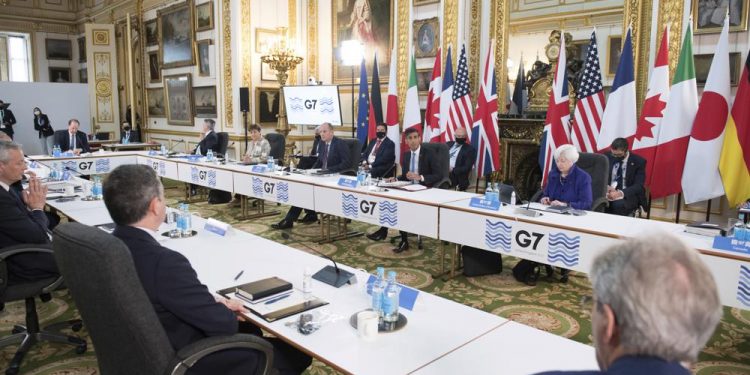By Enyichukwu Enemanna
Finance ministers from the Group of Seven industrial powers have announced readiness to place a limit to the price of Russia’s oil in order to limit its income and make it difficult to fund its current invasion of Ukraine which started February 14.
The idea was first proposed in their summit in June by USA Treasury Secretary, Janet Yellen. This is part of the move to impose full sanctions on Russia by the end of 2022.
The aim is to reduce Russia’s revenues and, by doing so, its ability to fund its war in Ukraine, while also limiting the impact of the war on global energy prices which has seen prices skyrocket.
Several sanctions have been imposed in Russia to force it reconsider its war in Ukraine and the latest seeks to tighten the series of sanctions, targeting its income.
In a statement issued by Germany, which chairs the G7 this year, the ministers said they “confirm our joint political intention to finalise and implement a comprehensive prohibition of services which enable maritime transportation of Russian-origin crude oil and petroleum products globally”.
Providing those services “would only be allowed if the oil and petroleum products are purchased at or below a price (‘the price cap’) determined by the broad coalition of countries adhering to and implementing the price cap,” they added.
The statement did not give any figure for a potential price cap and also did not specify when the G7 aims to finalise the plan.
It said “we invite all countries to provide input on the price cap’s design and to implement this important measure”.
At their meeting in Germany in June, the leaders of the G7 – the US, Germany, France, Britain, Italy, Canada and Japan – agreed to explore the feasibility of measures to bar imports of Russian oil above a certain level.
Analysts believe price cap could work because the service providers are mostly located in the European Union (EU) or the UK and thus within reach of sanctions.
To be effective, however, it would have to involve as many importing countries as possible, in particular India, where refiners have been snapping up cheap Russian oil shunned by Western traders.
The US has already blocked Russian oil imports, which were not enough in any case.
The EU has decided to impose a ban on the 90 per cent of Russian oil that comes by sea, but the ban does not take effect until the end of the year.




































